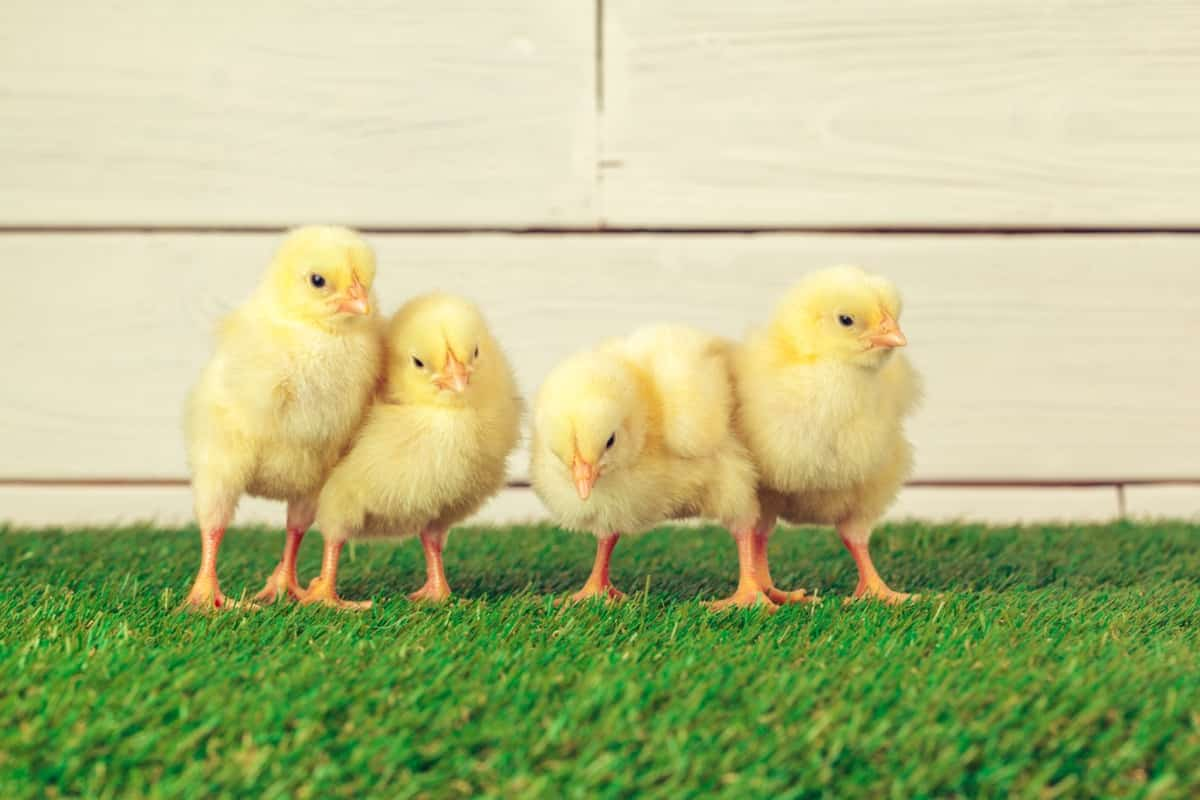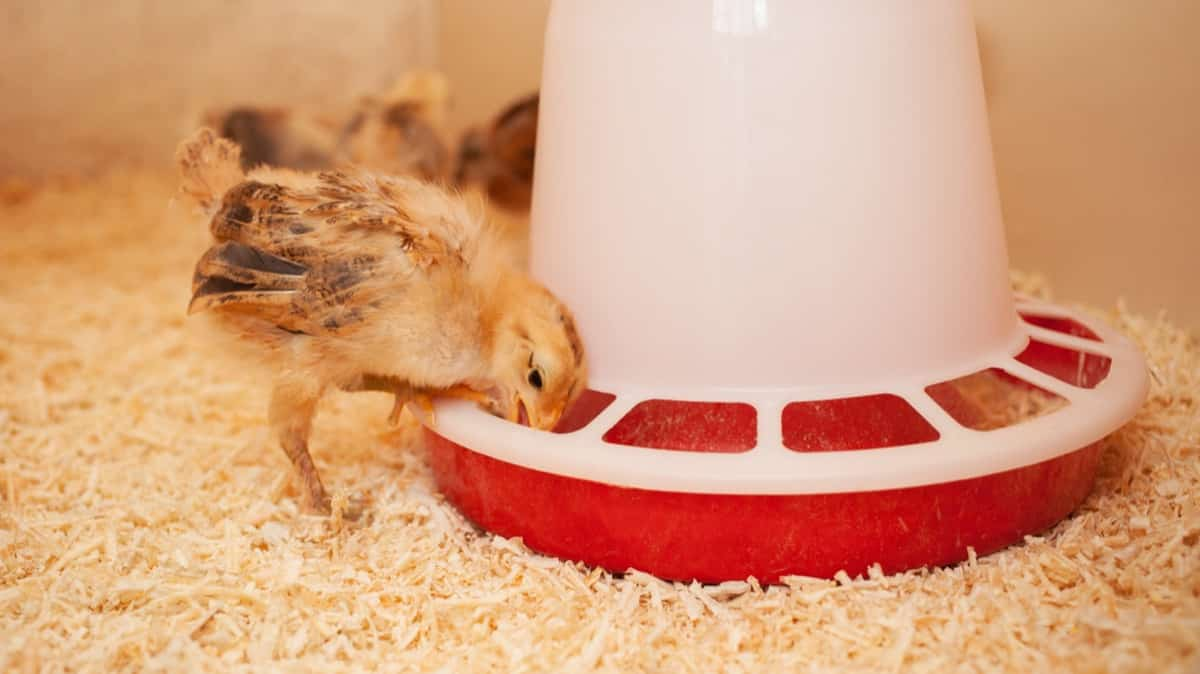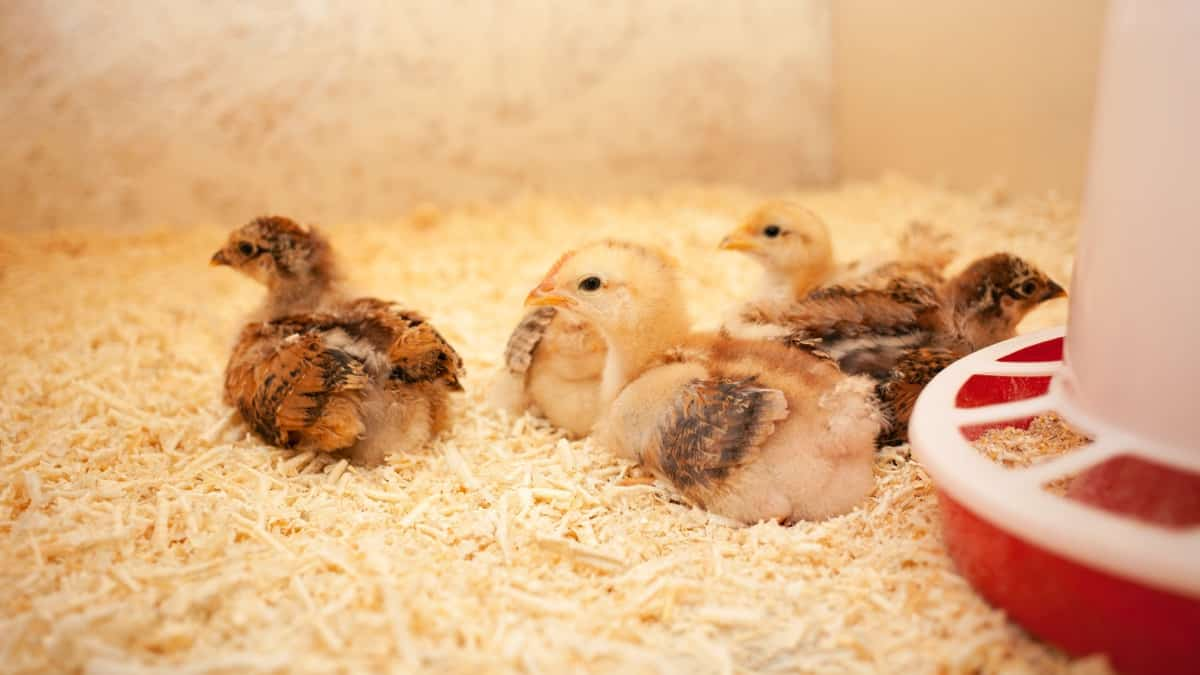It can be a rewarding and fulfilling experience to raise baby chickens. Whether you’re a seasoned farmer or a backyard enthusiast, providing proper care and employing effective techniques are essential for their health and growth. You will learn how to successfully raise baby chickens by reading this article.

How to Raise Baby Chickens
Caring For Your New Baby Chickens
Taking good care of your cute new baby chickens is essential if you bring them home. Baby chickens can be kept practically anywhere, one of their greatest advantages. When they’re young, however, it’s important to prepare an adequate living space for them in the future since they will grow rapidly. When they reach the age of four weeks, you should be ready to transfer them to their outdoor living space, the backyard chicken coop.
Choosing A Suitable Brooder
Keeping baby chickens in an environment that is safe from the cold and predators is very important when they are very young. Many people set up a baby chicken brooder. If you are planning to keep your baby chicken warm and dry, you may want to consider a laundry room or secure garage. It is best to place the brooder in an indoor area with a tiled floor, as chickens enjoy scratching around the brooder and can make a lot of mess.
Shelter For Your Baby Chickens
Baby chickens need to be protected from the cold. The same must also be ensured when providing adequate ventilation at all times. For example, a cardboard box with holes or even a plastic storage bin would be some options that can be used if they are large enough. Each baby chicken should have a minimum space of 40 square centimeters, which is ideal.
Maintaining Temperature For Your Baby Chickens
A heat source is essential for your baby chickens’ health and happiness. It might surprise you that chickens need a temperature of about 35°C to survive up to one week after birth. It is for this reason that a mother hen tucks her baby chickens under her plumage! As your chickens grow, they still need a relatively warm environment. At about eight weeks, the temperature should gradually decrease by about five degrees per week until the babies are ready to be moved outside.
Heat can be generated by a drop light with a reflector shield. Heat lamps with a power output of 250 watts are ideal for keeping birds comfortable. A red or white bulb can be used, and both are fine. So that the reflector light does not fall down, you should hang it from something secure. A fire could be started, or the bird could be injured or killed. To determine how high the light will hang, you need to know how much wattage it has.
Bedding For Your Baby Chickens
You will also need plenty of absorbent bedding for your baby chickens. Chickens poop, and a lot of it! If you take the time to line their living area with plenty of absorbent material, both of you will be happier. In this case, you would do well to spread some hemp bedding about two centimeters thick. Make sure the bottom of the brooder is lined with clean bedding material, such as pine shavings or straw. In addition to providing insulation, this will also absorb moisture. Clean bedding material, such as pine shavings or straw, should be lined in the bottom of the brooder. As a result, moisture will be absorbed, and insulation will be provided.
Netting For Your Baby Chickens
You should cover the living environment of your baby chickens with some netting. It might surprise you to learn that baby chickens are capable of flying and leaping. It is easy for chickens as young as a week old to fly up to 30 centimeters. Ensure your container or brooder is covered with netting or chicken wire to prevent adorable escapees.
In case you missed it: How Long Do Chickens Live: 6 Factors Affecting the Life Expectancy of Chickens

Gathering Necessary Supplies For Your Baby Chickens
Feeders: Each bird should have four linear inches of feeder space. The clean egg cartons filled with feed make excellent and easy-to-access feeders for young chickens. After the transition, provide low-lying feeders or trough feeders.
Waterers: For every 25 chickens, place two 1-quart waterers in the brooder filled with room-temperature water. Place the waterers in the brooder outside the comfort zone (do not place them under the heat lamp) 24 hours before the chickens arrive to help keep the water at room temperature.
Tips For Raising Baby Chickens
Protect From Predators: The safety and security of baby chickens is essential to protect them from predators. Protect the brooder and outdoor areas from predators such as dogs, cats, raccoons, and birds of prey with sturdy fencing. To prevent digging predators from entering your property, make sure your fencing is buried underground.
Offer A Balanced Diet: To support their growth and development, baby chickens require a well-balanced diet. Start with a high-quality baby chicken starter feed designed specifically for their nutritional needs. The feed should contain nutrients, vitamins, and minerals essential for baby chickens’ healthy development. You should also provide clean, fresh water at all times.
Monitor Baby Chicken Behavior: Monitor baby chickens’ well-being by closely monitoring their behavior. Healthy chickens are active, alert, and have a good appetite. Consult a veterinarian immediately if you notice signs of illness, such as lethargy, reduced appetite, or abnormal feces.
Introduce Outdoor Time Gradually: Introduce chickens to outdoor environments gradually once they are a few weeks old and have grown feathers. It is a good idea, to begin with short supervised outings in a secure and predator-proof area. As a result of this outdoor exposure, they will be able to acclimatize to different weather conditions and develop their instincts.
Socialize The Chickens: The chicken is a social animal that thrives in the company of others. Multiple chickens should be raised together, if possible, to ensure social interaction. They can establish a pecking order and prevent loneliness this way.
Gradual Integration With The Flock: The baby chickens can be gradually integrated into an existing flock once they have grown and are fully feathered. Observe their interactions closely to prevent aggression from older chickens. You should integrate them slowly, allowing supervised interactions until their acceptance.
In case you missed it: Dried Mealworms for Chickens: Should Your Chickens Eat Them?

Conclusion
Raising baby chickens requires careful attention, dedication, and knowledge. By following the essential care techniques and tips outlined in this guide, you can provide a nurturing environment for your baby chickens to thrive. Monitor their health, provide proper nutrition, maintain cleanliness, and promote socialization. Your baby chickens will grow into healthy, happy adult chickens with proper care.
- Feed Your Flock for Less: Top 10 Tips to Save on Chicken Feed
- Ultimate Guide to Ossabaw Island Hog: Breeding, Raising, Diet, and Care
- Hatching Answers: The Top 10 Reasons Your Chickens Aren’t Laying Eggs
- Eggs and Economics: Breaking Down the Cost of Raising Backyard Chickens
- Defend Your Greens: Proven Methods to Keep Iguanas Out of Your Garden
- Ultimate Guide to Cinnamon Queen Chicken: A Comprehensive Guide for Beginners
- Ultimate Guide to California Tan Chicken: Breeding, Raising, Diet, Egg-Production and Care
- Ultimate Guide to Marsh Daisy Chicken: Breeding, Raising, Diet, and Care
- 10 Types of Chicken Farming Businesses You Can Start for Profits